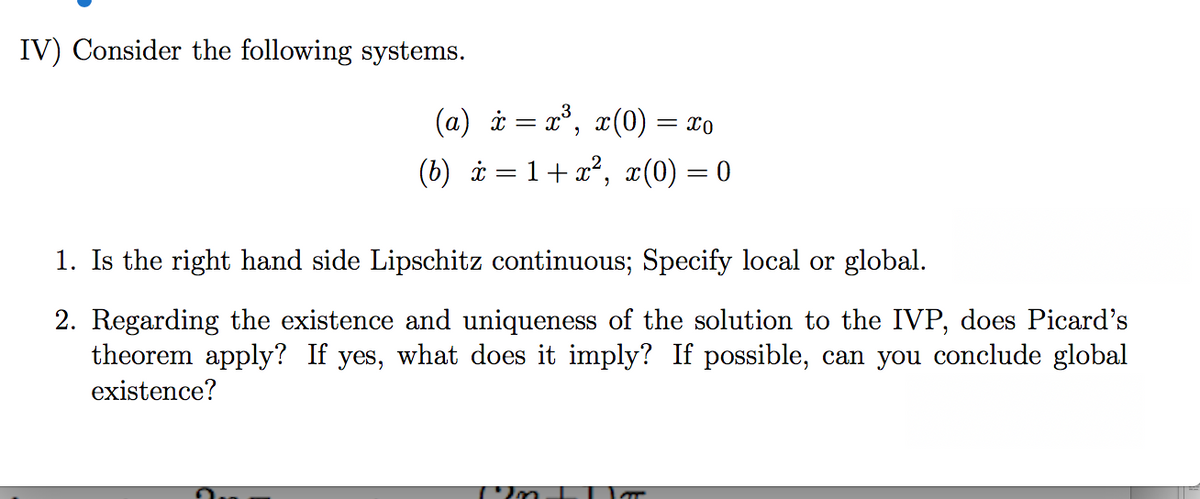Consider the following systems. (a) i = x°, ¤(0) = c = x0 (b) i = 1+ x², x(0) = 0 %3D 1. Is the right hand side Lipschitz continuous; Specify local or global. 2. Regarding the existence and uniqueness of the solution to the IVP, does Picard's theorem apply? If yes, what does it imply? If possible, can you conclude global existence?
Consider the following systems. (a) i = x°, ¤(0) = c = x0 (b) i = 1+ x², x(0) = 0 %3D 1. Is the right hand side Lipschitz continuous; Specify local or global. 2. Regarding the existence and uniqueness of the solution to the IVP, does Picard's theorem apply? If yes, what does it imply? If possible, can you conclude global existence?
Linear Algebra: A Modern Introduction
4th Edition
ISBN:9781285463247
Author:David Poole
Publisher:David Poole
Chapter2: Systems Of Linear Equations
Section2.4: Applications
Problem 17EQ
Related questions
Question
2nd part

Transcribed Image Text:IV) Consider the following systems.
(a) i = x°, x(0) = x0
(b) i= 1+x², x(0) = 0
1. Is the right hand side Lipschitz continuous; Specify local or global.
2. Regarding the existence and uniqueness of the solution to the IVP, does Picard's
theorem apply? If yes, what does it imply? If possible, can you conclude global
existence?
Expert Solution
This question has been solved!
Explore an expertly crafted, step-by-step solution for a thorough understanding of key concepts.
This is a popular solution!
Trending now
This is a popular solution!
Step by step
Solved in 2 steps

Knowledge Booster
Learn more about
Need a deep-dive on the concept behind this application? Look no further. Learn more about this topic, advanced-math and related others by exploring similar questions and additional content below.Recommended textbooks for you

Linear Algebra: A Modern Introduction
Algebra
ISBN:
9781285463247
Author:
David Poole
Publisher:
Cengage Learning

Linear Algebra: A Modern Introduction
Algebra
ISBN:
9781285463247
Author:
David Poole
Publisher:
Cengage Learning